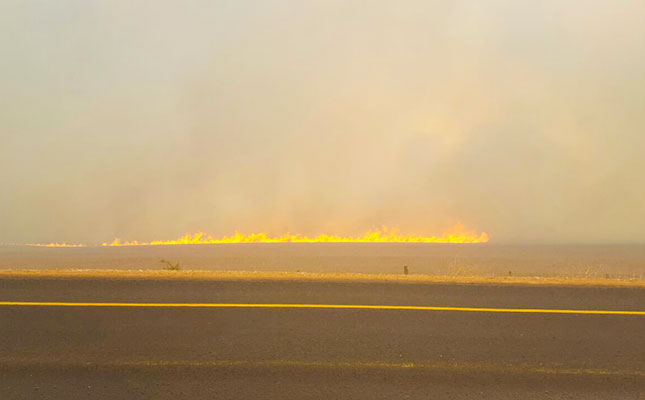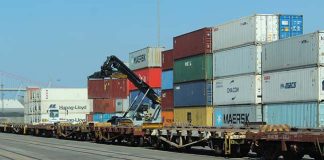
Photo: Tobie-Christie du Preez
The Western Cape Department of Local Government has brought forward the province’s 2020/2021 fire season declaration, following a request by Agri Western Cape to ensure the safety of the 2020 harvest.
“The previous three- to five-years of below-average rainfall have clearly been reflected in the province’s lower than average grain yields. The current grain harvest looks very promising, but the province is at a stage where fires can pose a danger to wheat fields,” explained Jannie Strydom, CEO of Agri Western Cape.
According to a statement by Agri Western Cape, the department, through the Provincial Disaster Management Centre, had negotiated with service providers to make resources available from 1 November. The Western Cape fire season usually commenced on 1 December.
Strydom said Western Cape MEC for local government, Anton Bredell, shared grain producers’ concerns with regards to wildfires. He said the department would continue to work with the agriculture sector to ensure that everything possible was being done within their capacity to prevent the outbreak of wildfires and limit their spread.
Louise Wessels, manager of the Greater Overberg Fire Protection Association (FPA), shared Strydom’s sentiment.
“Good winter rainfall has resulted in what is likely to be record harvests. However, that means that combine harvesters and other machinery will be working harder than usual, increasing the likelihood of fire, and therefore also the risk of damage and loss. [The year] 2020 will therefore be more risky than previous years.”
Wessels called on farmers to be extra vigilant this year. She said the association had compiled a checklist of support activities to reduce the risk of wildfires before and during harvesting. These included:
- Clearly marking water points so that they were visible, and ensuring that fire units were serviced and in good working order.
- Drawing a map of your farm, indicating water sources, entrance gates, building locations, escape routes and alternative roads, among other details, and keeping a copy of it in your vehicle to hand over to the incident commander during a fire.
- Checking your combine harvester and other equipment regularly for overheating. Maintaining the electrical systems, removing dried plant material and rocks from the equipment whenever possible, and not parking them close to flammable objects, especially when the engine is still hot.
- Ensuring that firefighting equipment is located near harvesters and mowers. Having a bakkie sakkie following the harvester, and/or having fire beaters at hand when a fire starts, could be the difference between dousing a tiny fire, or battling a huge blaze.
- Ensuring that employees were equipped with the necessary information to react quickly and efficiently when a fire started.
- Keeping relevant phone numbers where they can easily be located. When a fire breaks, first call the local fire department, then your neighbours and fire management unit leader.
- Keeping directions to your farm where they can easily be accessed, so that you can provide clear directions to fire-fighting teams, or learn how to “drop a pin on your cell phone”. This is a quick and effective way to inform your neighbours and fire-fighting teams of the exact location of the fire.










